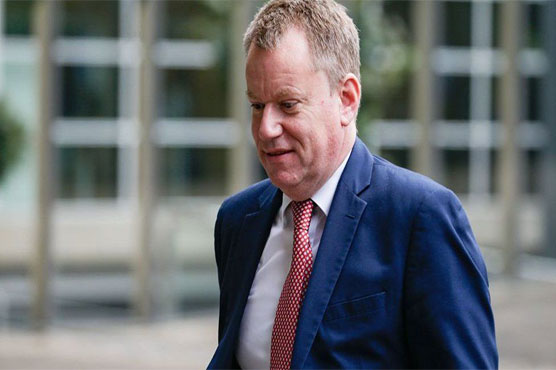Brexit negotiator says Britain will make own rules

Britain will not accept supervision from European Union as part of a free trade deal after Brexit.
BRUSSELS (AFP) - Britain will not accept supervision from the European Union as part of a free trade deal after Brexit, its chief negotiator said on Monday.
Senior diplomat David Frost told academics and diplomats in Brussels that London would not follow EU-imposed "level playing field" rules.
Instead, it will set its own standards for commerce and state aid even if that means giving up privileged access to the EU single market.
"It isn t a simple negotiating position which might move under pressure -- it is the point of the whole project," Frost said of Brexit.
His speech at the Free University of Brussels took place as EU member states were drawing up a mandate for their own negotiator, Michel Barnier.
Some capitals, in particular France, are pushing for a post-Brexit deal in which Britain would have to sign up to EU-supervised regulation.
Britain s neighbours want continued access to British fishing waters and for London agree not to undercut EU workplace and environmental standards
But Frost, outlining the position championed by Prime Minister Boris Johnson, said London wanted a deal of the kind Brussels signed with Canada.
The CETA deal removes the vast bulk of tariffs on trade between the EU and Canada but does bind Canada to follow EU legislation.
If that is not available, then at the end of the year and the post-Brexit transition period Britain and the EU will simply trade under WTO rules.
"We must have the ability to set laws that suit us -- to claim the right that every other non-EU country in the world has," Frost said.
"So to think that we might accept EU supervision on so-called level playing field issues simply fails to see the point of what we are doing."
European tade experts also met on Monday and tweaked the negotiating mandate that Barnier hopes member state ambassadors will approve during the week.
In the latest version of the mandate seen by AFP, member states made clear that they wanted "sufficient guarantees for a level playing field".
But Frost insisted Britain had no intention of being a low regulatory economy, and indeed might adopt more advanced rules than the EU.
These, however, would spring from British legislation, not the EU rule book.
"It s perfectly possible to have high standards, and indeed similar or better standards to those prevailing in the EU," Frost said.
One example, he said, was support for "crops that reflect our own climate rather than laws designed to reflect growing conditions in central France".
"I struggle to see why this is so controversial," he said, describing the idea that the EU rules in place should never change as "self-evidently absurd."
"The British government is confident in the strategy we have chosen," he said.
"We re clear that we want that Canada free trade agreement type relationship that the EU has said so often is on offer, even if the EU seems to be expressing some douts about that unfortunately.
"Even if those doubts persist, we re ready to trade on Australia-style terms, if we can t agree a Canada-type FTA. We understand the trade-offs involved."
Australia has no EU trade agreement, as EU president Ursula von der Leyen reminded Johnson last week, urging him to be "way more ambitious".
She added, however: "If this is the British choice, well, we are fine with that without any question."
Frost said he would issue a written document next week outlining how the UK could see the free trade agreement working.
Many in Brussels have questioned whether it is even possible to conclude a free trade agreement in eight months -- most have taken years.
But Frost said Britain would not be asking for an extension beyond December 31.
"At that point we recover our political and economic independence in full. Why would we want to postpone it?" he asked.

